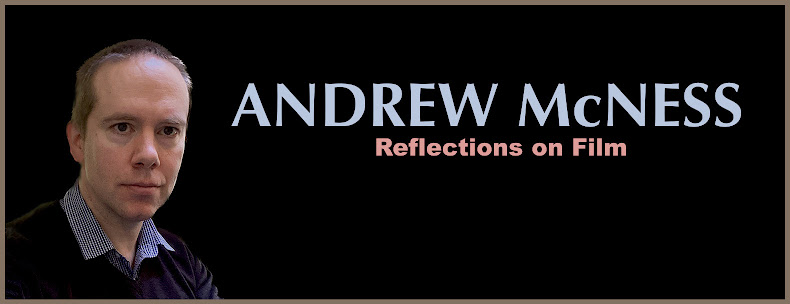“People say I'm the life of the party
Because I tell a joke or two
Although I might be laughing loud and hearty
Deep inside I'm blue
So take a good look at my face
You'll see my smile looks out of place.”
Although I might be laughing loud and hearty
Deep inside I'm blue
So take a good look at my face
You'll see my smile looks out of place.”
Smokey Robinson, Tracks of My Tears
(featured on the Hollywood Homicide soundtrack)
(featured on the Hollywood Homicide soundtrack)
The return of Harrison Ford's space pirate
in Star Wars Episode VII: The Force Awakens created a level of cultural
anticipation that often seemed to surpass that for the film itself. Upon
the film's arrival, I certainly found myself enjoying Ford's "three
decades later" encore for the weary dog charm, cheek and, most
surprisingly, moments of palpable fear (all relating to a Vader-esque figure of
darkness, Kylo Ren). And yet ... I came away feeling that a funnier evocation
of a post-Return of the Jedi Han Solo had been seen in 2003 with an
underappreciated spoof of "buddy cop" action cinema. Were you one of
the few (in stratospheric Star Wars box-office terms) to see Ron Shelton's
Hollywood Homicide?
Ford's character, here, is Joe Gavilan: he
is a citizen of Planet Earth, stranded in Los Angeles, stranded as a cop with
so much unpaid overtime he has a second job as a real-estate broker. I could
swear - with tongue not entirely in cheek - he is Han Solo's spiritual heir. The
amusing bemusement that emerged through Ford's characterisation in the original
Star Wars trilogy (1977-1983) has become a default position for the
Earth-bound Solo. But it is important to note that, in making this claim of a
spiritual heir, Gavilan's trajectory is a slightly graver one to that which we
found the "real" Solo travelling in Episode VII. Gavilan
exists in the hypothesis: "What if Han Solo flubbed not one too many, but far
too many a deal?" Gavilan, as broker, struggles to elicit people's interest
in the first place. This is a Han Solo where the cockiness has been kicked
out of him (not an entirely objectionable development), though not always the
fight, with only the gruffness and bemusement remaining. And then multiplied by
ten.
Along with the cockiness, the dash
of Solo has almost completely gone; the world-weariness has eventually taken
the poise out of his shoulders. And it's little wonder the spirit is waning:
with the filmmakers no doubt trading gleefully on Ford's iconic space cowboy image,
Gavilan is forced to commander a kid's bicycle during a high-speed chase.
Furthermore, Gavilan, the aged cowboy, observes the gender politics of a
new generation with incredulity as Josh Harnett's younger cop partner wins the
women over with an earnest and gentle politeness rather than sparring, Solo's
celebrated stock and trade. But this Solo does remain as wary of
extra-terrestrial gangsters - in this case, Hollywood hopefuls, opportunists
and miscreants - as we've seen. He traverses a universe of Angelenos as varied
as the clientele of a Tatooine cantina; one of them, a psychic of the air waves
played by Lena Olin, provides some Jedi-like guidance for Gavilan. Well, when
she's not "making shit up". But her greater value, in terms of the
film's narrative strands, that is, is that her playfulness recaptures some of
the playfulness in him.
Gavilan may be wary, but director Shelton
carries much affection for the poseurs, the dreamers and the spiritually
deflated. And while Hollywood Homicide may have been a summer flop
- was there too much cruising through the Hollywood colour and satire, and not
enough earnest homicide thrills on offer? - it is very much one of a piece with
Shelton's more celebrated, cruisey "character comedies", Bull
Durham (1988) and Tin Cup (1996). Its first reel tends to hold
little promise - the conspiracy and the first round of gags seem fairly rote -
but in the moment where Gavilan senses a real estate opportunity with a crime
witness, the film kicks into its enjoyably idiosyncratic gear. You realise that
selling a "monstrosity on Mt Olympus" is the greater stake for
Gavilan. (As he bitterly relates, the property is located "at the corner
of Hercules and, I shit you not, Achilles.")
One thing, though: it would seem
this is a Han Solo who has come of age. He is fed-up with machismo games. But
he is stuck: it would seem his entrepreneurial impulse to free himself has only
implicated himself further within a culture of bluster. Towards the film's
conclusion, his real estate world interrupts his furious pursuit of a crim. But
it's an important call (they all are when desperation has set in) and
with the hand that’s free of a menacing firearm, he answers. Immersed in an
offer on the Mt Olympus, he fails to notice the four terrified office workers
stuck in an ascending elevator with him. Their anxiety escalates as the
“madman” breaks out into sheer elation. But sure enough he soon registers their
terror, and Gavilan, an utterly decent man at heart, quickly seeks to reassure
them: "I'm a real-estate broker."
I'm sorry this Han Solo never got a
sequel.
Published 16 October 2016
Published 16 October 2016

